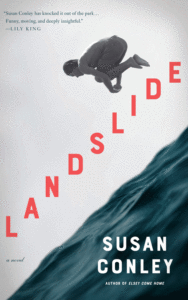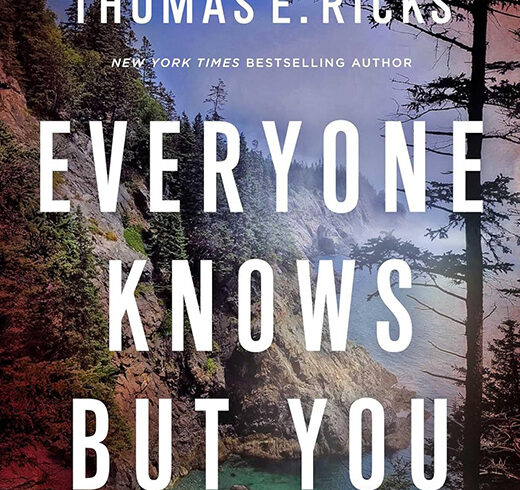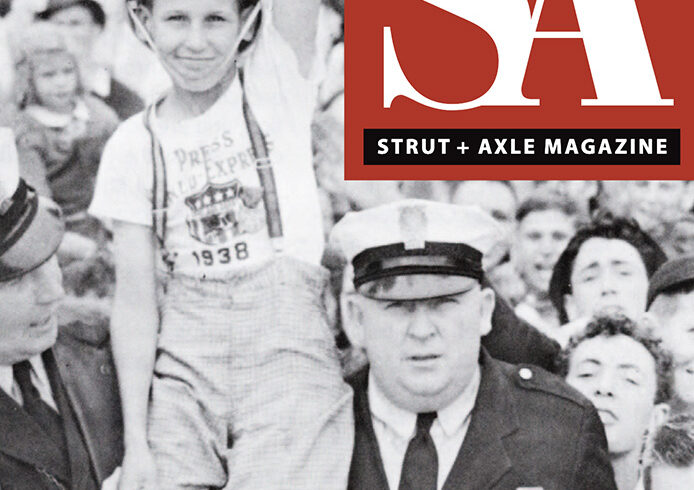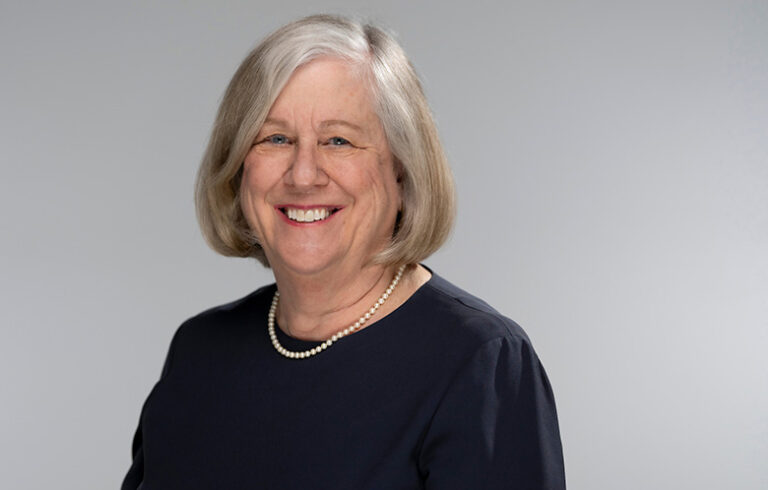Landslide
By Susan Conley
Review by Carl Little
Early in season one of the FX series Fargo the ex-stripper Gina Hess says of her misbehaving teenage sons, “They’re wolves.” This appraisal came to mind near the beginning of Susan Conley’s fourth novel Landslide when the chief protagonist and narrator, Jillian Archer, uses the same animal analogy to describe her two sons, Sam, 14, and his older brother Charlie, 17.
As they drive down a peninsula somewhere in Maine listening to Fleetwood Mac on the radio, Jillian tells her “wolves” she was raised on Stevie Nicks. While the name of the song is not mentioned, no doubt it’s “Landslide,” with what we soon come to find out are relevant lyrics:
Well, I’ve been ‘fraid of changin’
‘Cause I’ve built my life around you
But time makes you bolder
Even children get older
And I’m gettin’ older, too.
Conley’s novel represents a kind of landslide—of setbacks and confrontations, uncertainty and disquiet. And then there’s survival: The Archer family lives on a small island off Sewall, a fictional Maine coast town, in a former fishing shack with inadequate and expensive baseboard heating. They go back and forth by boat, to school and work. Jillian is a documentary filmmaker; her husband Kit, a fisherman.
 Two incidents are key to the storyline: the accidental death of Sam’s friend Liam two years earlier and the more recent explosion on a boat off Georges Bank where Kit has been fishing and in which he almost loses his life. The repercussions of both events are felt throughout, be it Sam’s incessant acting out or Kit’s problematic relationship with a woman who comforts him in Nova Scotia.
Two incidents are key to the storyline: the accidental death of Sam’s friend Liam two years earlier and the more recent explosion on a boat off Georges Bank where Kit has been fishing and in which he almost loses his life. The repercussions of both events are felt throughout, be it Sam’s incessant acting out or Kit’s problematic relationship with a woman who comforts him in Nova Scotia.
The book is replete with mother-son skirmishes. Jillian’s life is a constant angst-filled guessing game: Is Sam doing drugs? Is Charlie having sex? Why don’t they listen to her?
Conley deftly traces the mood swings as the family navigates reprimands, accusations, and Instagram. The boys want their freedom—“I live in a police state,” Sam declares when he finds out his mother is checking his social media—but also require grounding.
Throughout the book, Conley references issues impacting the Maine fishery. The waters are warming, forcing lobstermen to go farther out to haul, and in a “post-cod” era, fishermen are selling off trawlers and fending off lenders.
Jillian’s new documentary is about the fishing community so she’s up on the damning data. She tells Kit’s fisherman father, the stalwart Jimmy, there are only “20 commercial fishing boats left in the state and 20miles of working waterfront.”
In the end Landslide is about family and community and how fragile each is in the often less-than-grand scheme of Maine coast existence. Self-reliance will only get you so far; eventually, you’ll need help. In considering how many people are moving to Maine, Jillian wonders at one point if the state has become “some stand-in for people’s lost innocence.”
This book is about the cycle of innocence lost and found—and re-found. It feels real in the tradition of Ruth Moore or Ted Holmes, unadorned and heartfelt. Kudos to Conley for bringing this painful and promising world to life.
Carl Little writes for several publications and is the author Edward Hopper’s New England, The Watercolors of John Singer Sargent, The Art of Francis Hamabe, and Nature & Culture: The Art of Joel Babb.




